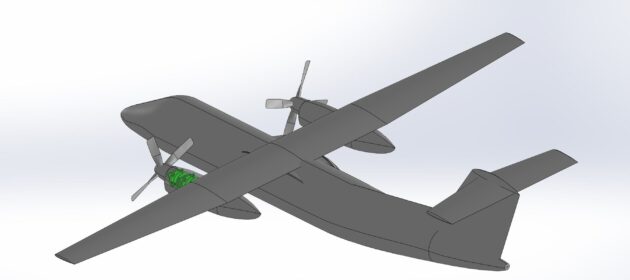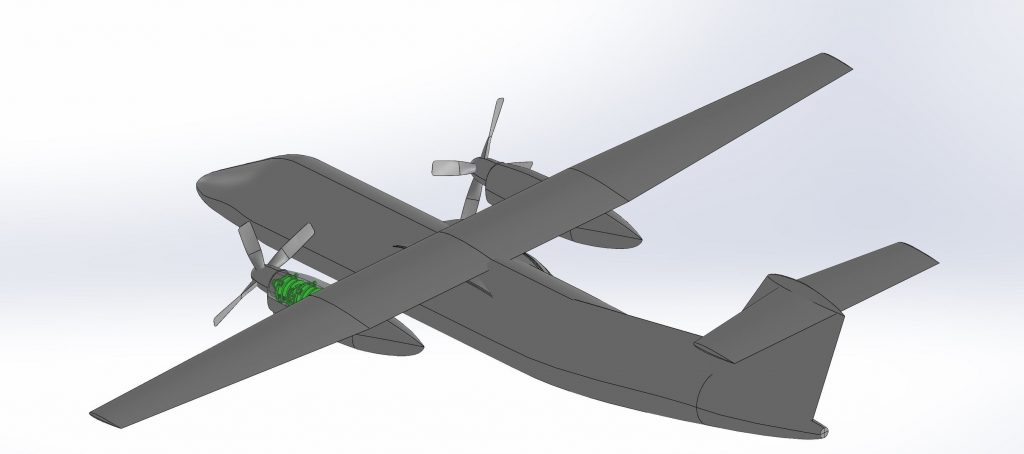
MagniX has been working on electric propulsion systems for years, but now the Everett, Wash.-based venture is adding hydrogen fuel cells to its power repertoire for carbon-free flight.
The expansion plan follows up on MagniX’s partnership with Universal Hydrogen, announced two years ago, and on last month’s initial flight test of an all-electric Eviation airplane equipped with MagniX’s 650-kilowatt motors.
Last year, MagniX and Universal Hydrogen said they’d work with Plug Power and AeroTEC to create a Hydrogen Aviation Test and Service Center at Grant County International Airport in Moses Lake, Wash., where the Eviation flight test took place.
Today MagniX announced that it would start developing hydrogen fuel cells to complement its battery electric and hybrid electric propulsion systems.
“The future of sustainable aviation will require a mix of solutions,” MagniX CEO Nuno Taborda said in a news release. “We are bringing our experience and expertise to advance hydrogen fuel cell technology, which will enable us to power even more aircraft. MagniX is leading the charge into the future with passion and innovation.”
Providing enough power for all-electric airplanes is a key challenge for the aviation industry. Eviation’s battery-powered Alice airplane — which is being developed in Moses Lake and at that company’s headquarters in Arlington, Wash.— is designed to carry just nine passengers. Last month, Eviation CEO Gregory Davis said battery technology would have to progress in tandem with Alice’s development cycle to hit a 2027 target for delivering the planes.
In contrast, MagniX says hydrogen has a relatively high energy density, providing the capability to power electric aircraft with 50 to 90 passengers — that is, five to 10 times as many passengers as Alice can handle.
“Just as MagniX has led the world in electric propulsion, now we have the chance to lead again in the development of hydrogen technology,” said Riona Armesmith, MagniX’s chief technology officer. “This technology has the potential to play a significant role in ushering in the era of zero-carbon flight. By complementing our existing battery electric and hybrid electric programs, it will allow us to best serve the electric aerospace marketplace, meeting the needs of the planet and of our customers.”
In addition to Universal Hydrogen and Eviation, MagniX’s partners include the Brazilian aircraft manufacturer Desaer, New York-based Blade Urban Air Mobility, Britain’s Faradair, Australia’s Sydney Seaplanes, Swiss-based H55 and Vancouver, B.C.-based Harbour Air. MagniX also has a $74.3 million NASA contract to demonstrate electric propulsion technologies.
Another aviation company focusing on hydrogen fuel cells is California-based ZeroAvia, which is working with Seattle-based Alaska Airlines to outfit a De Havilland Q400 aircraft with its hydrogen-electric propulsion system for demonstration purposes. That work is being done at a research-and-development center at Everett’s Paine Field, not far from MagniX’s headquarters.

